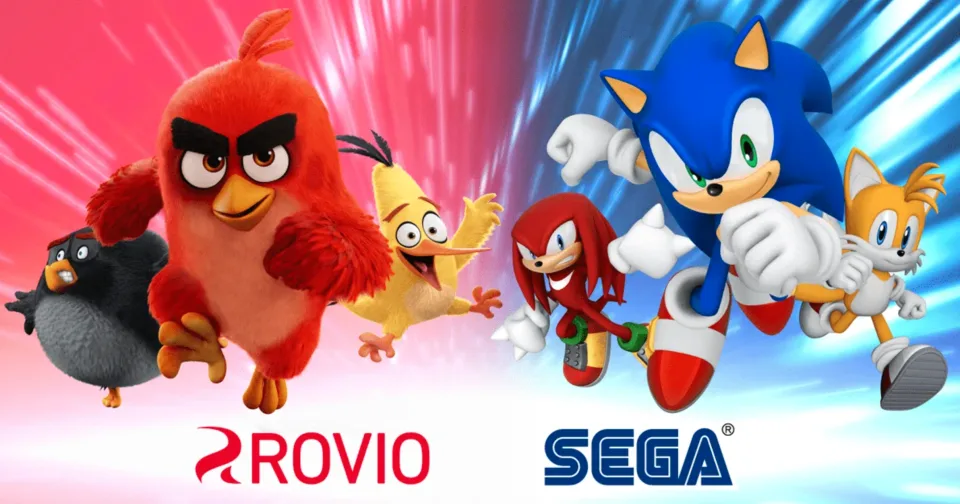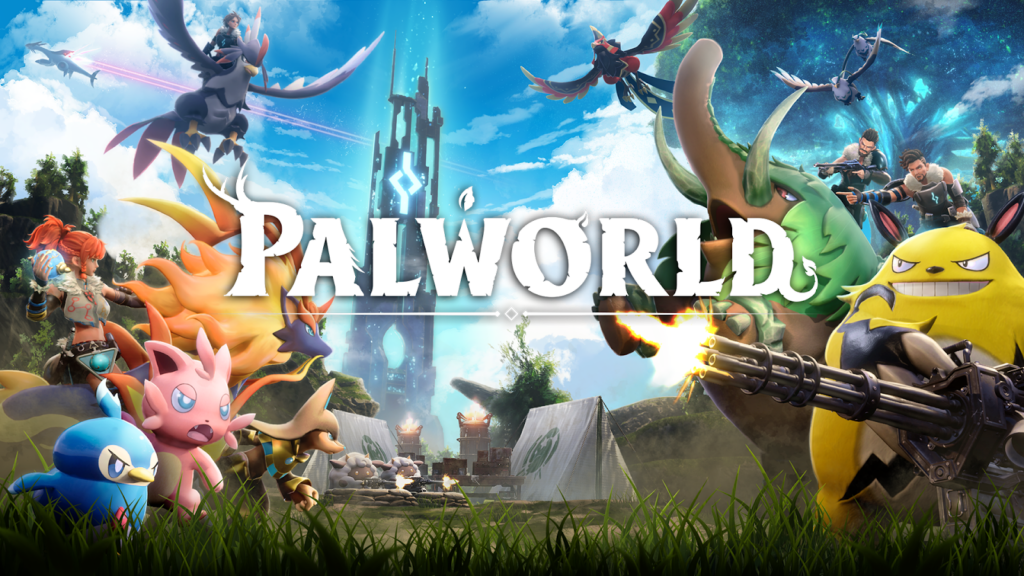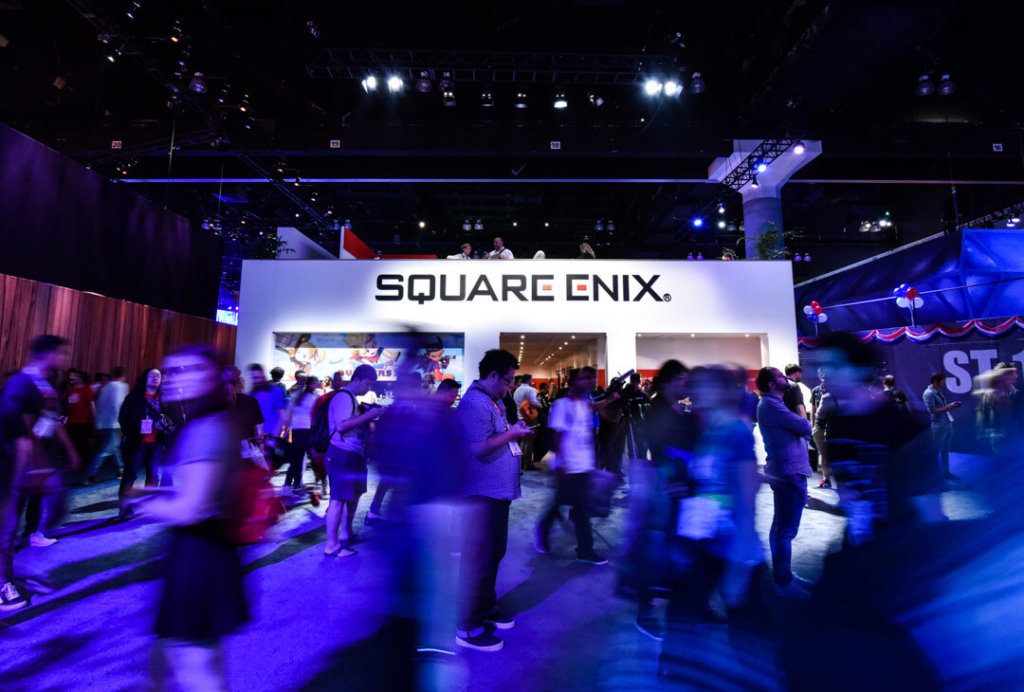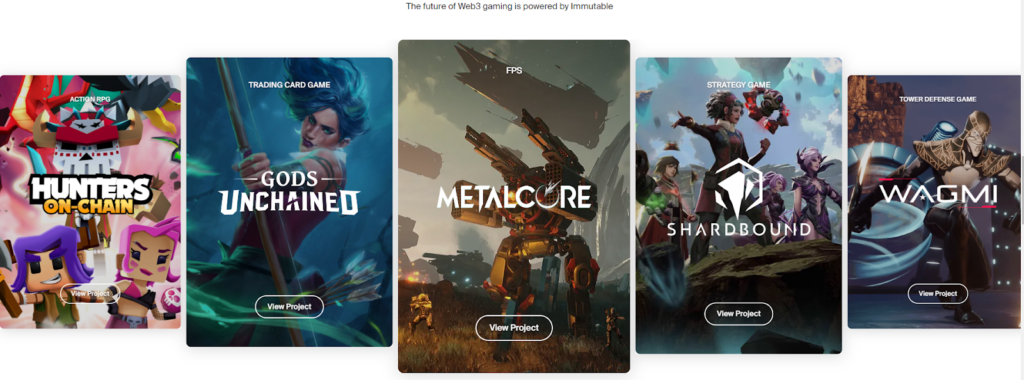
There has been consolidation among the many blockchain ecosystems launched in the past few years. Here, we’ll examine who’s likely to survive further consolidation and establish a base to build a web3 business upon. Though web3 gaming has clearly underperformed, the heavy financial backing in the space provides a reason to still pay attention.
Immutable Continues Consolidating
Like many early Ethereum-based games, Gods Unchained outgrew what the chain could support and motivated Immutable to create a new layer-2 network to support it, Immutable X (IMX). One of the important distinctions of this new network was using an early version of ZK (Zero-Knowledge) technology from StarkWare that reduced the amount of game data needing to be verified by the blockchain. This let Immutable set up a system where games could operate without paying gas fees, but at the cost of not being able to use smart contracts with its lack of EVM (Ethereum Virtual Machine) support. Both gas costs and EVM support have been key considerations in bringing games to the blockchains.
After back and forth competition over games with Polygon, the two have partnered up to let Immutable focus on games and Polygon on infrastructure tech. Polygon developed ZK-EVM tech, which combines some of the gas savings with smart contract support that Immutable is using for its new ZK-EVM blockchain, benefitting both companies. This partnership has helped funnel more games over to Immutable with the benefit of being able to support or move to other EVM-supporting blockchains, reducing the risk of deploying games on Immutable.
While the ZK-EVM chain is relatively new, Immutable released its newest game, Guild of Guardians, using it. Upcoming major releases like Shardbound (in limited open beta June 27th) and MetalCore (closed beta 3 also June 27th) will be on this ZK-EVM blockchain, while others like Illuvium (launches July 25th) will be on the older Immutable X blockchain.
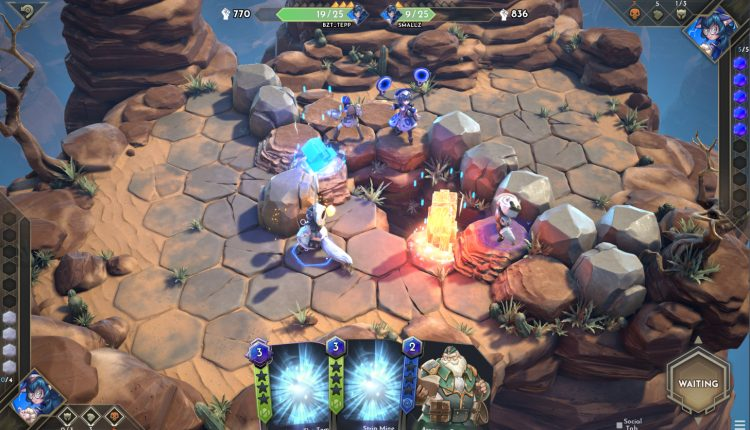
Immutable has been able to gain a good amount of user traction thanks to a few different factors over the past two years. First was Gods Unchained’s significant growth in terms of secondary market transaction volume, along with a more recent mobile release. The second was finally releasing its second game last month, Guild of Guardians, with over 500K downloads (mostly on Android) in the first month, according to data.ai. Lastly Immutable rolled out its noncustodial wallet and authentication solution in December 2023, Immutable Passport, to smooth out the process of working with the blockchain, especially on mobile. Immutable co-founder Robbie Ferguson posted about the strong growth of its newer ZK-EVM chain recently to show how fast it’s grown already.
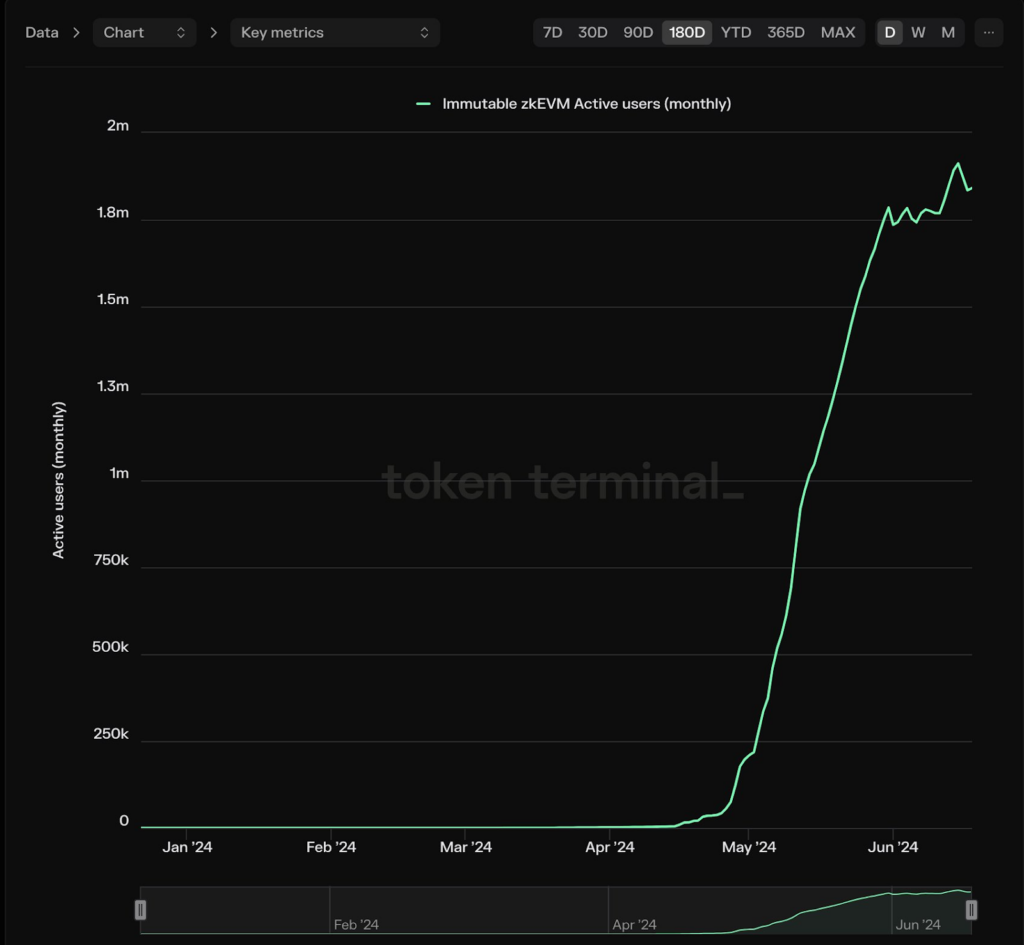
Despite this progress, there haven’t been many new third-party games. Notably, Immutable does continue finding success in convincing games such as Pixelmon, Blast Royale, Hunters On-Chain, and The Mystery Society into switching to its ecosystem, thanks to its stronger technical and financial support bases.
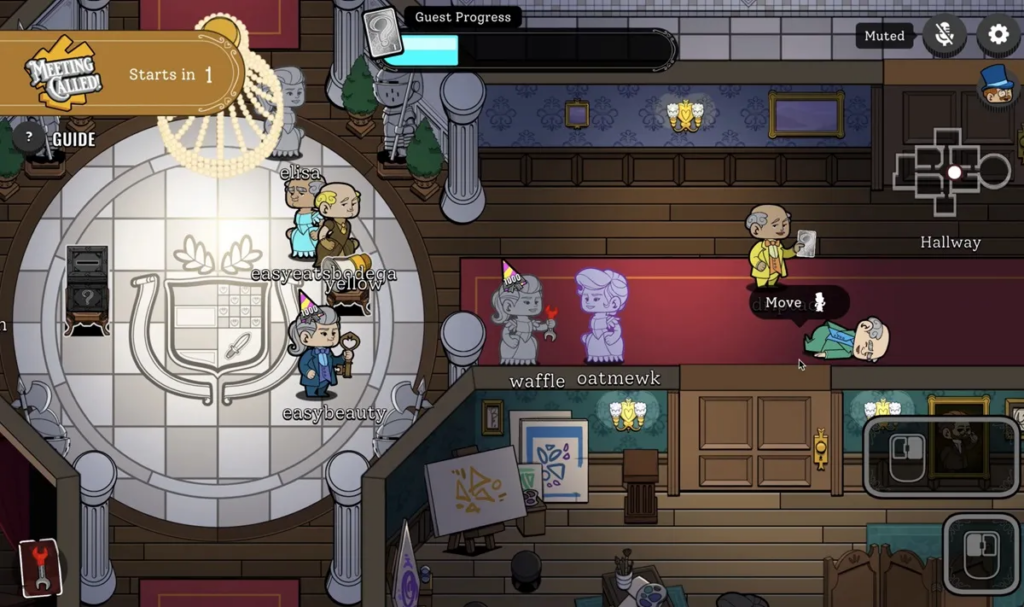
Overall the future looks pretty good for Immutable in terms of expanding the portfolio of games and onboarding new players. Giving games a choice between two different layer-2 networks offers good flexibility for developers while still maintaining a connection to the primary Ethereum network.
This year should see full releases of some anticipated games like Illuvium, MetalCore, and Shardbound that should help grow Immutable further.
Poly-gone?
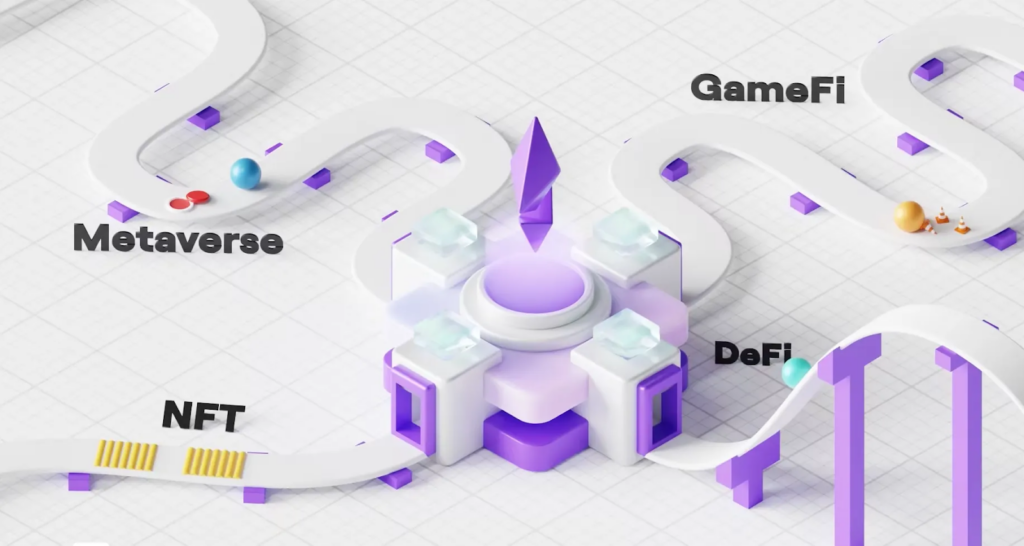
At one point, Polygon seemed to be clearly in the lead, as it not only had the most games outside of Wax and Binance, but big companies like Animoca Brands seemed to be backing its play. After things started heating up with the back-and-forth poaching of games with Immutable, something shifted: Polygon took a step back from competing over content and decided it was more of a technology and protocol platform company, not a game publisher. This renewed focus also meant its gaming division and head Ryan Wyatt didn’t make sense anymore, and away they went.
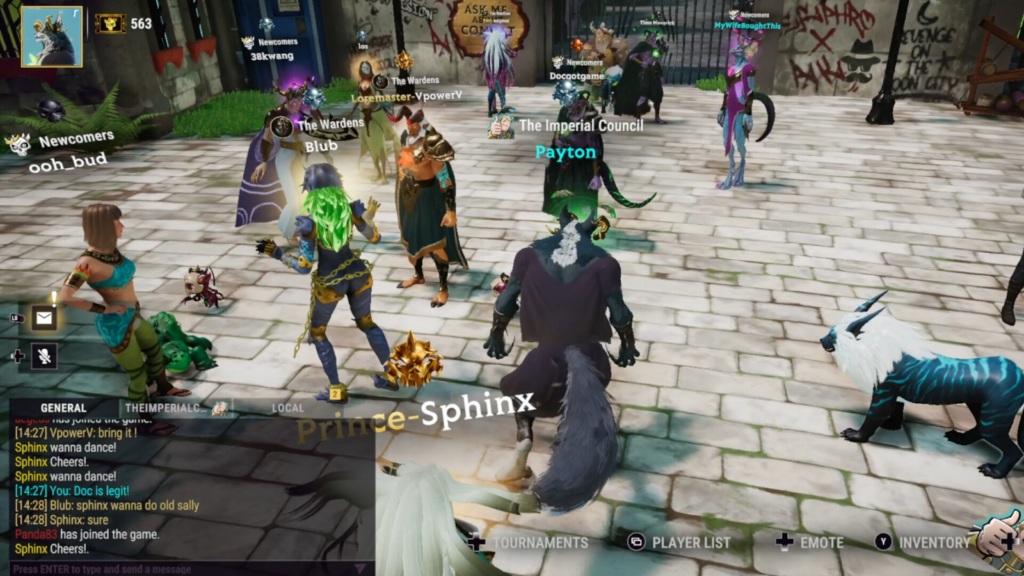
Many game projects have switched over to other chains, but there are some interesting games in development that haven’t announced a platform switch (yet), including Champions Ascension and Phantom Galaxies. Thanks to the refocus, Polygon is still in a good position for its goal as an Ethereum layer-2 where tokens and NFTs are moving and secondary markets surviving.
While there will still probably be small games here and there deploying on Polygon, it’s unlikely to be a future destination for bigger games.
Ronin Lands Another Hit
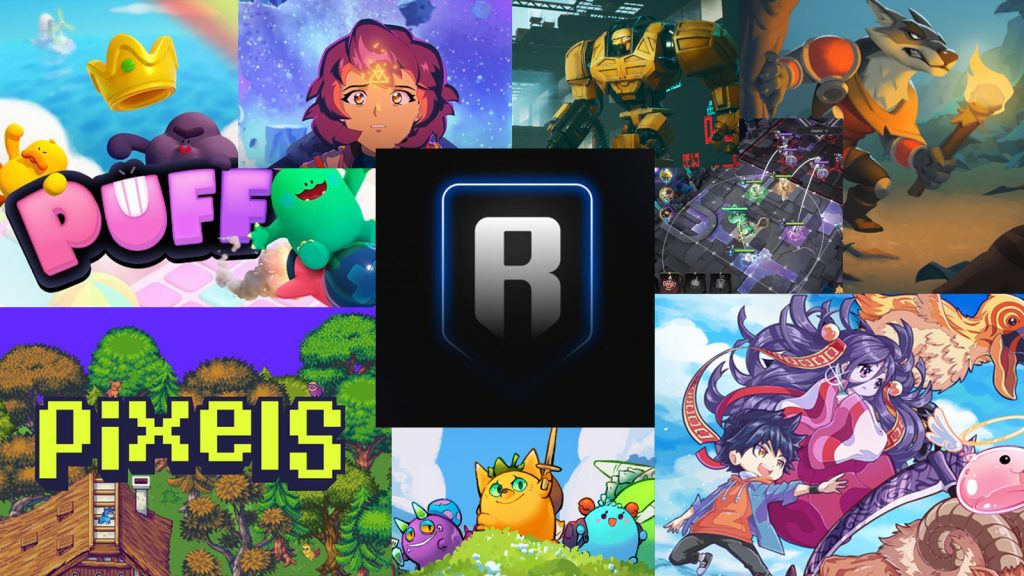
Ronin started similarly to Immutable, developed by Sky Mavis as the new home of Axie Infinity. After onboarding multiple new games over the past year, it finally found another hit with Pixels, a social farming and crafting game that recently broke the 1M DAUWs (daily active unique wallets) barrier.
This has not only given something new for Ronin’s existing audience to play, but also likely brought a good number of new users to the network. Sky Mavis has focused on strengthening the Ronin community, centered around Axie, and hopes to leverage that for new games on the chain.
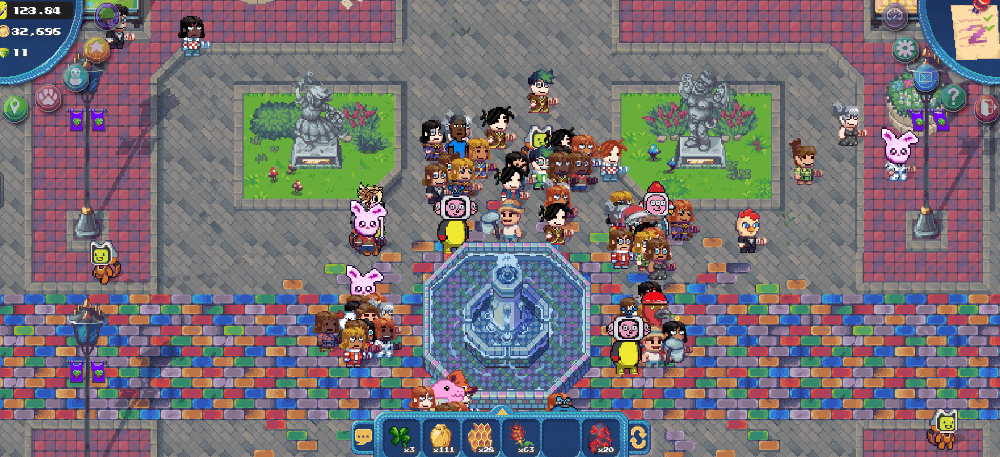
Prior to Pixels, most of the games coming onto the network were either Axie-related or a hodgepodge of deals for mostly unfinished games that failed to have an impact. The uptick in users is good, but there’s also an unknown and potentially large number suspected to be bots, thanks to the airdrop campaign.
Daily active users on Ronin do seem to have already started dipping, which may be related to bot account ban waves, and may indicate excitement around Pixels starting to wane. Despite the social focus of the game, its simplistic gameplay and lo-fi graphics make it unlikely Pixels remains successful long term.

Sky Mavis will need to find more strong games to keep Ronin relevant and interesting. In order to help facilitate more development outside of the Axie program, Ronin recently launched its Ronin Forge program with $50K grants in its $RON token.
Sky Mavis hopes to find developers that can have something playable in 3-6 months, but this likely isn’t enough to attract the experienced developers who can make the most compelling games. Sky Mavis is also taking a page out of Immutable’s book and leveraging Polygon’s ZK-EVM technology to allow developers to build ZK-EVMs as a Ronin Layer 2.
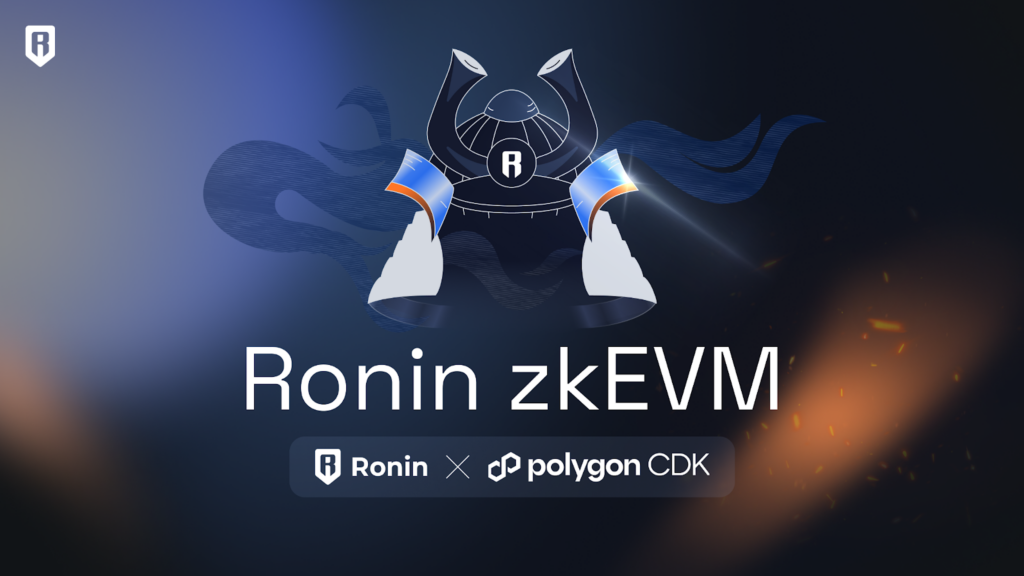
Sky Mavis will need to find more strong games to keep Ronin relevant and interesting. In order to help facilitate more development outside of the Axie program, Ronin recently launched its Ronin Forge program with $50K grants in its $RON token.
Ronin Mavis hopes to find developers that can have something playable in 3-6 months, but this likely isn’t enough to attract the experienced developers who can make the most compelling games. Sky Mavis is also taking a page out of Immutable’s book and leveraging Polygon’s ZK-EVM technology to allow developers to build ZK-EVMs as a Ronin layer-2.
Oasys Finally Picks Up Some Steam
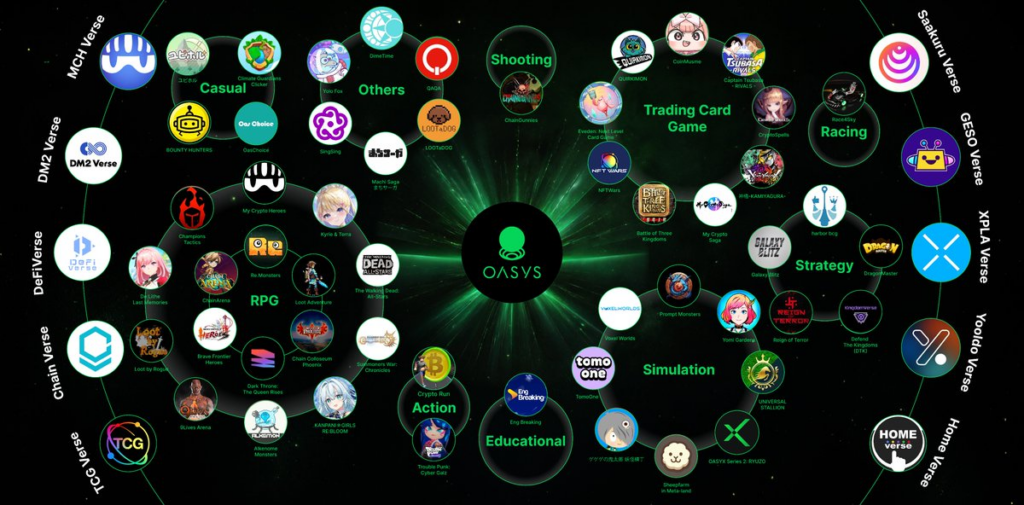
Oasys emerged in 2022 as a cooperative effort between Japanese and South Korean game developers to build a blockchain designed for games. The initial validators include Bandai Namco, Sega, Thirdverse, Double Jump.tokyo, Ubisoft, Mythical Games, NEOWIZ, Wemade, nad Com2uS. Netmarble, Square Enix, and Nexon also joined later.
Despite a lack of initial games committed to Oasys (and, yes, many partners also work with other chains), interest in the Asia region has stayed relatively strong.
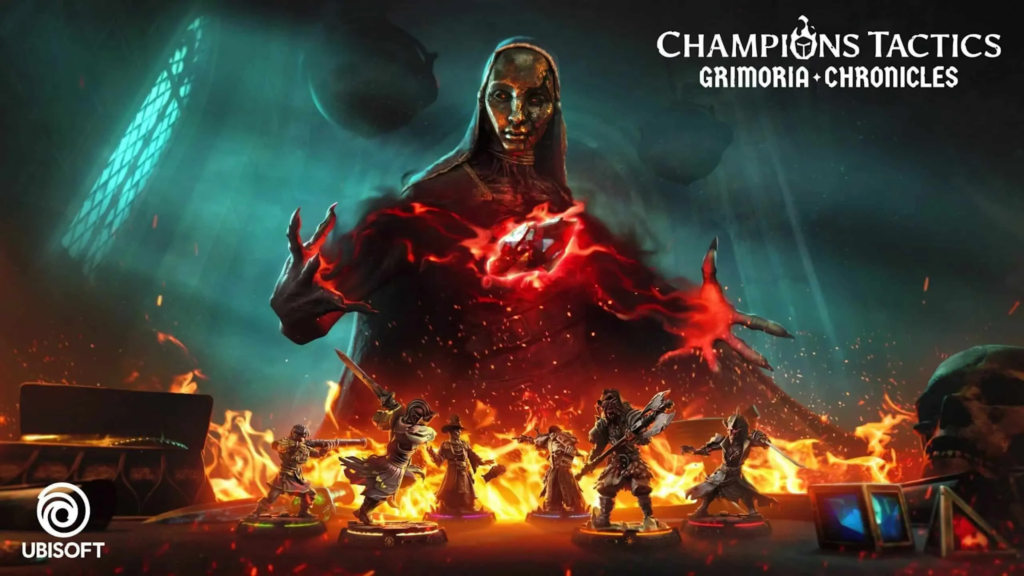
Ubisoft committed its first official web3 game, Champions Tactics: Grimoria Chronicles, to Oasys. Since then, Oasys support has been enabled on existing games like Captain Tsubasa Rivals (developed by BLOCKSMITH&Co. and Mint Town) and both Com2uS’ current XPLA games, The Walking Dead: All-Stars and Summoners War: Chronicles.
Many developers didn’t feel that the blockchain was ready or had proven out the tech initially, leading to a slow start to games targeting it. Onboarding existing games has helped increase interest, but many developers are still feeling out web3 game design prior to committing to a new chain.
There are a few notable games in the works. Double jump.tokyo’s game will leverage Sega’s Sangokushi Taisen franchise in Battle of Three Kingdoms. Square Enix’s first web3 project, Symbiogenesis, is still live and has sold out its NFTs, but the company hasn’t mentioned its next web3 project. Bandai Namco hasn’t gone further than AI pet experiments on Oasys, but is likely to develop more as a founder.
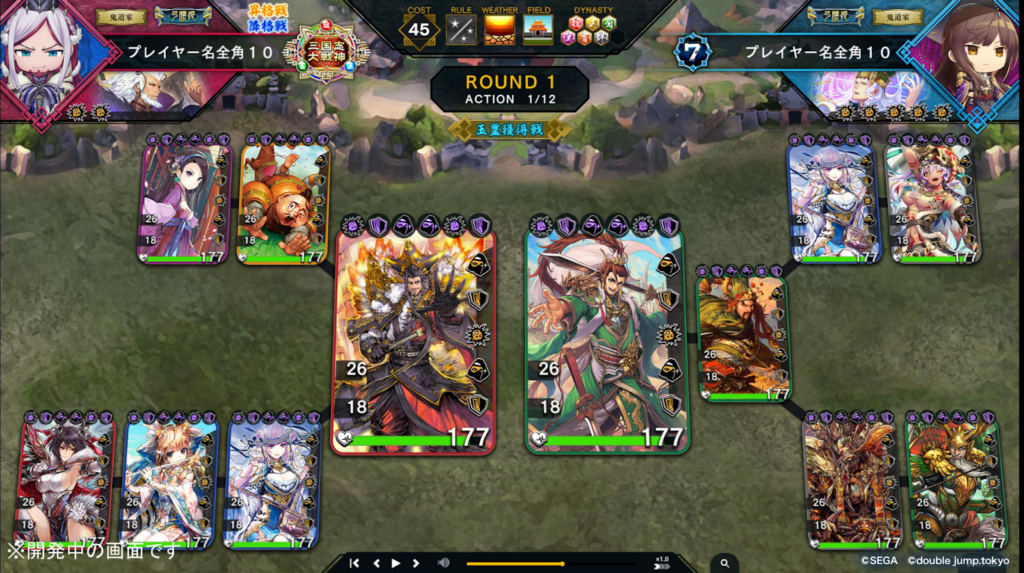
It’s still early for Oasys, and it doesn’t command much market or mind share yet, but recent progress shows potential, and Asia will likely stay committed to web3 for the foreseeable future.
Now that there are live games, there is a much higher likelihood that we will see announcements from larger Asian game developers later in the year, with so many committed as founders and validators.
WEMIX: Lost in the Mix?

The first major Asian game-focused blockchain, WEMIX, was built by South Korean game developer WEMADE. Despite high interest in web3 from South Korea, WEMADE hasn’t been able to convert its 25-plus live games into growth for its WEMIX network.
After managing to put out some of the more polished web3 games early on with Mir4 and later Mir M, issues with bots and token farming have taken their toll.
WEMADE recently released Night Crows, but it was a rocky launch and likely cannibalized Mir M, with player stats likely inflated by bots. That said, Night Crows is currently the top game on the platform. This would be good news if the other 23 games on the network weren’t down significantly from their former peaks.
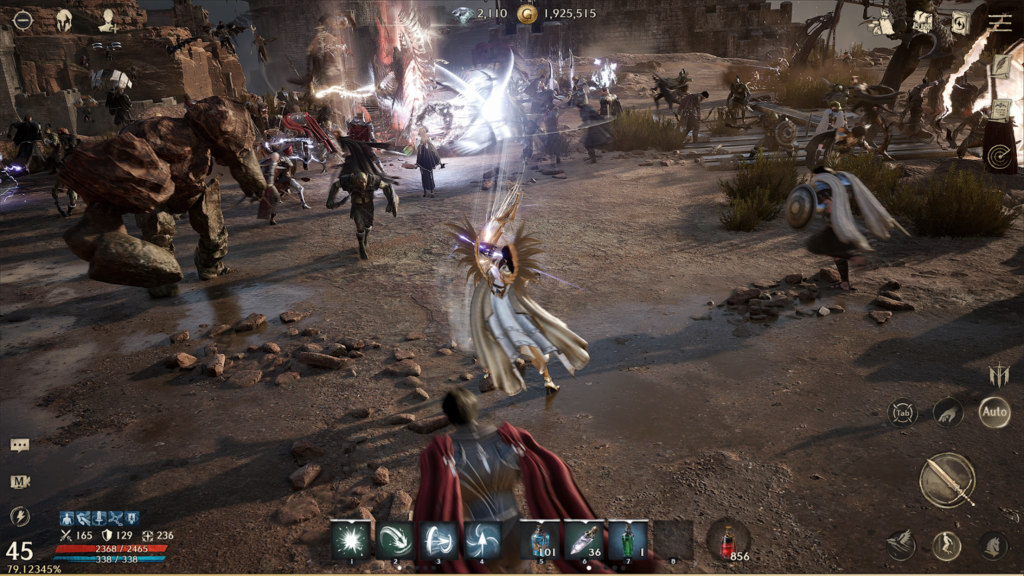
WEMIX has a decent slate of future games that could help its cause, but it lacks highly anticipated releases. South Korea is slowly working through clearer web3 regulation, but WEMADE’s involvement in regulatory scandals has worked against its ability to push WEMIX to local success.
WEMADE seems to be focused very heavily on the RPG space, which makes sense given their popularity in Asia generally, but there’s only so much room to compete in a single genre.
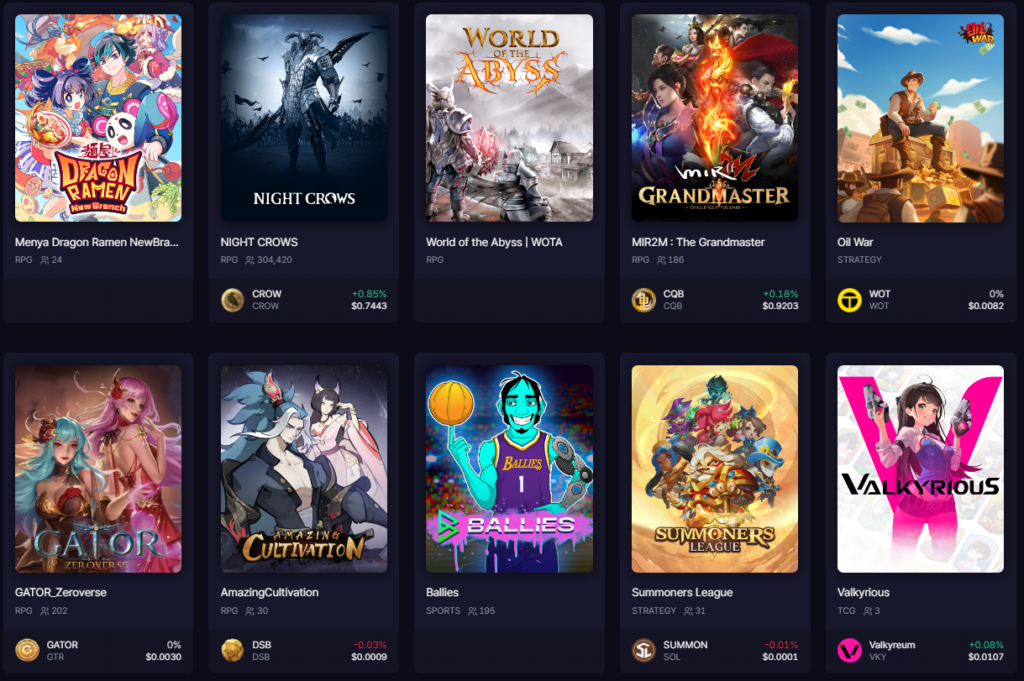
WEMADE has created some interesting token designs that have evolved over time, but the failure to not design resistance has been a major Achilles' heel for the games. Given WEMADE’s ability to monetize its games well through pay-to-win elements and keep on top of bots, we expect WEMIX will stick around for the foreseeable future based on regional interest, unless regulatory action puts a stop to things. The important thing for WEMADE is to find some bigger success with third-party games.
Solana Still Hasn’t Found It
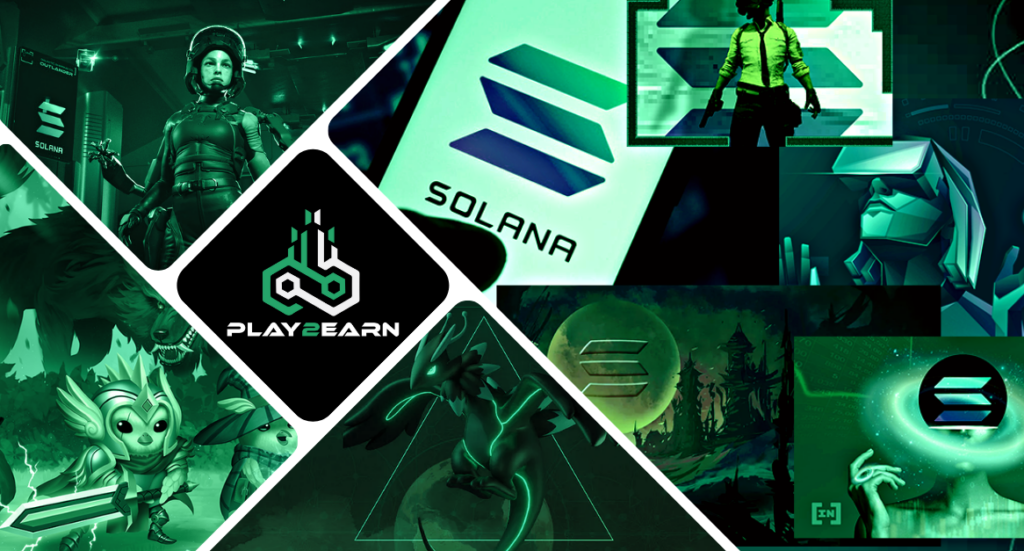
Despite novel technology, solid engineering efforts, and a strong NFT culture, Solana’s ecosystem hasn’t produced any hit games.
There are some notable live games like Aurory, ev.io, and Mini Royale: Nations, but nothing has propelled Solana into being a competitive gaming ecosystem. There are more games in the pipeline like BR1: Infinite, Nyan Heroes, and the overly ambitious Star Atlas. We don’t want to rule future successes out, but given the lack of traction so far, many developers will increasingly view Solana as a gamble to build on.
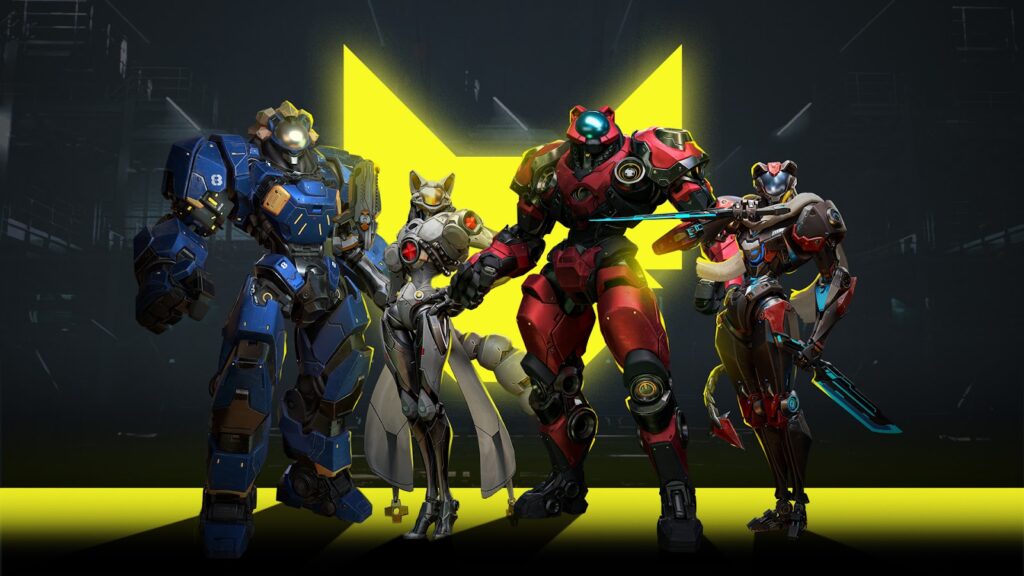
The network does have a huge amount of NFT secondary market traction that still could benefit games. Solana is also heavily focusing on engineering this year, with tooling improvements, a major validator revamp called Firedancer, and its GameShift API that supposedly makes developing for the network easier.
Unfortunately, Solana is in a position similar to Polygon (which focuses on improving foundational tech but usually not for gaming specifically), except it doesn’t benefit from the Ethereum ecosystem. It seems like most of those interested in building outside Ethereum — like Shrapnel, Off The Grid, and Maple-Story Universe — would rather build on a blockchain with single game “side chains” like those offered by Oasys, WEMIX, and Avalanche subnets. This prevents game-specific blockchain transactions from competing with all the other transactions.
The Future for Gaming Blockchains
In the midst of the NFT hype of 2021-2022, the expectation was that general purpose blockchains with cheaper and faster transactions like Polygon and Solana would be the destination for games. But today, games are shifting to blockchains that are purely focused on games; Immutable is the current leader in the West, and a few teams continue to duke it out in the East.
Blockchains like Ronin, Wax, Hive, and Binance just are no longer attractive to higher-caliber game developers, despite having games that have had big player numbers (padded by bots). As consolidation continues, it has the potential to amplify the network effects of blockchains hosting any future hit games, should there be more on the same chain.
Immutable is clearly trying to build up such a portfolio, but it does risk splitting games across two chains with neither specifically designed for games at a tech level. We expect Immutable to remain a top web3 gaming destination into 2025 at least, with no current major Western competitors and several game releases incoming. Even without any Axie Infinity-level mega-hits, Immutable has a growing number of games with actual players — instead of bots — which play like real AA-AAA games, and not indie experiments.
While Oasys is off to a slow start, it has a significant number of established publishers attached. I expect Asia to be a future leader in the space, owing to a few factors. South Korea is one of the most mature web3 game development regions, despite regulations prohibiting the market, so there’s explosive potential there should that change.
Japan has been clear it believes web3 is inevitable and has been supportive on a government level, with a culture that strongly suits NFTs and almost all the large game companies outside of Nintendo willing to experiment. Due to language and cultural differences between the East and West, it's likely that a more regional Asian blockchain will be supported by Japan and South Korea. So if it's not Oasys, it will probably be a similar competitor.
All this said, given the heavy underperformance of web3 gaming so far, nothing is guaranteed. Many platforms and teams will continue to fizzle out, and we’re still waiting for games that break the mold and convince the masses to care. Perhaps a couple of these contenders may win big over time, but there’s still a difficult road ahead.
A Word from Our Sponsor: OVERWOLF

Integrate Safe UGC Into Your Game with CurseForge For Studios
Overwolf is an all-in-one platform that lets creators build, share, and monetize in-game apps, mods, and private servers. With over 165,000 creators, and 41M monthly active users, Overwolf supports the world’s most popular AAA titles such as League of Legends, Minecraft, World of Warcraft, and 1,500 other games.
For game developers, Overwolf offers CurseForge For Studios. CurseForge For Studios is a white-label solution that lets game makers and publishers easily integrate mods safely and seamlessly into their games, both existing and new, at zero cost. It’s battle-tested by AAA studios and games, including Maxis (The Sims™ 4), Studio Wildcard (ARK), TakeTwo Interactive (KSP), and others.
CurseForge For Studios offers:
- Cross-Platform Modding: Integrate Overwolf’s open-source SDKs and plugins to let players discover and install mods in-game, across all platforms and storefronts.
- Full Analytics Dashboard: Get a full modding usage dashboard to learn which mods are popular.
- Safe and Secure Moderation: Studios define policies and guidelines on what is permitted, and these are then enforced by Overwolf - with only authorized content being published.
- Creator Relations and Payments: CurseForge supports creators with monthly payments, equity investments, developer contests, and hackathons to get their creative juices flowing, and kickstart content creation for your game.
Content Worth Consuming
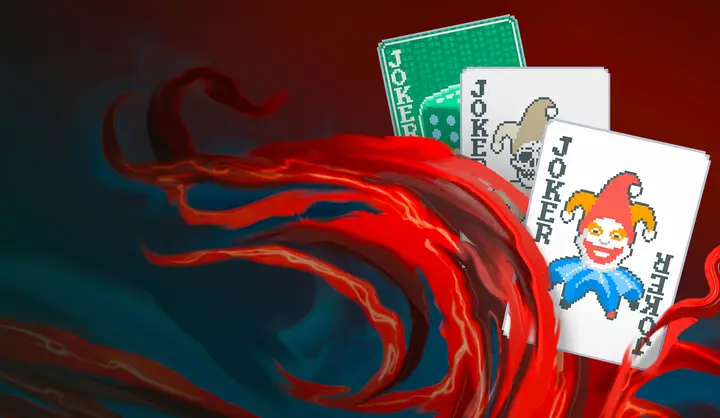
How The Planet Crafter Hit 1 Million Sold, Post-1.0! (The GameDiscoverCo): “Firstly, some context: Miju Games is a small French PC game dev founded by a couple, Amélie & Brice. Their first game, adorable-looking‘witches x memory tests’ local multiplayer title Abracadabrew, came out in late 2020, and… didn’t get anywhere. But try again they did, and first-person“space survival open world terraforming crafting” game The Planet Crafter launched in Steam Early Access in March 2022, and went 1.0 with a bang – adding online co-op – in April 2024. So much so that the devs – now augmented to 6 people – announced 1 million units sold a couple of weeks ago. We were delighted when Miju’s Brice reached out at the start of June, and said he wanted to provide detailed data on how the team reached such a great milestone. Let’s start with some topline data pulls.”
The State of Gaming 2024 with Sensor Tower's Lexi Sydow(Deconstructor of Fun Podcast): “In this episode, Lexi Sydow, Director of Corporate Marketing and Insights at Sensor Tower, unleashes her mobile gaming market insights. She covers significant trends in mobile gaming and marketing, app vs game dynamics, ad spending on TikTok and YouTube, regional differences, IP collaborations, and the future of subscription gaming. Gain valuable insights on market normalization post-COVID and ATT changes, and learn about the trajectory of apps surpassing gaming revenues.”
Do Demos Help Earn Wishlists? Steam Next Fest June 2024 (howtomarketagame.com): “One of the longest running mysteries around festivals like Steam Next Fest was whether people deliberately play games and carefully evaluate each or do they just spam the “wishlist” button as they browse? For instance Valve has made it exceedingly easy to wishlist games: they added that blue button with the star. You don’t even have to visit the game’s steam page to wishlist it. Does this inflate wishlist counts?”
Tips for Navigating the PR Landscape (gamesindustry.biz): “The indie space is incredibly exciting, and increasingly competitive. Players can only pick so many games a year and with discoverability being one of the leading issues for developers (and players), there's a case to be made that PR is as vital as ever. But how can you effectively utilise the PR resources you have at your disposal? What tactics should you employ to engage with your target audience? And how will you ensure the publications and influencers you engage with also benefit from these endeavours?”
The Action Arcade Strategy of Shannon Loftis(The Fourth Curtain): “For a second time we are graced with the presence of videogame legend Shannon Loftis! Veteran of running Flight Simulator and Age of Empires at Microsoft, she was instrumental in the acquisition of Rare for Xbox Game Studios. Now an advisor to Duke University's videogame program she joins us to talk franchises, Animal Well and the great Profanisaurus!”
Our Gamification Consulting Services
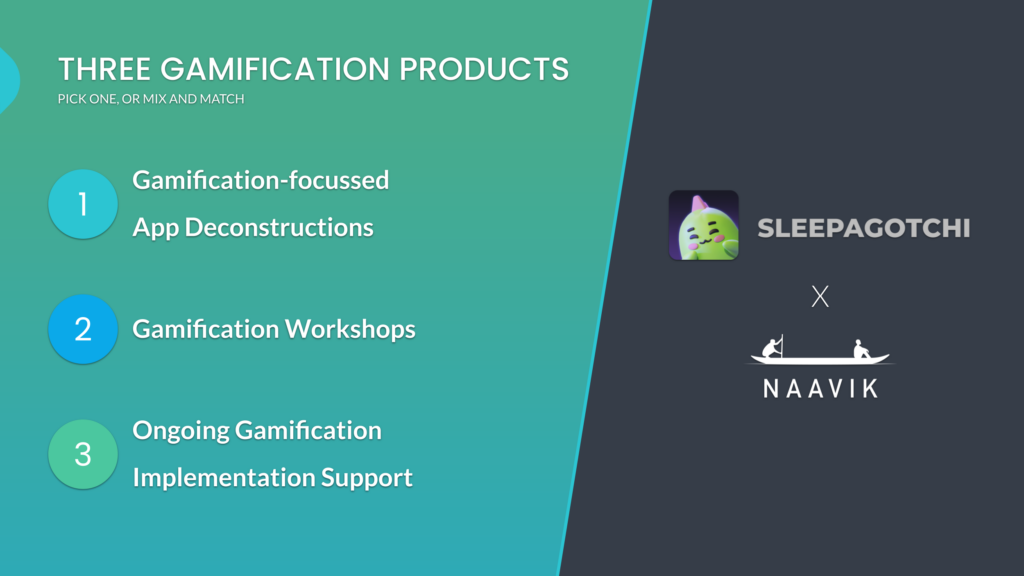
Today, we’re highlighting our gamification consulting services! Applying game mechanics to all sorts of applications has proven to boost retention, engagement, and revenue — but doing it right can be harder than it seems. More specifically, Naavik offers constructive gamification deconstructions, gamification workshops, and ongoing flexible support. Here is what one of our clients had to say.

“We have been very happy with the support Naavik provided to Sleepagotchi. They have an incredible expert network, with world-class game designers, narrative designers, and UA specialists. The team helps us in developing and stress-testing new game core loops, think deeply about our game constraints, and something that is rare for a consulting partner - care deeply about our mission and vision.”
- Anton Kraminkin, Founder & CEO of Sleepagotchi
If you’d like to learn more, reach out here! Also check out our expanded consulting service portfolio here.



